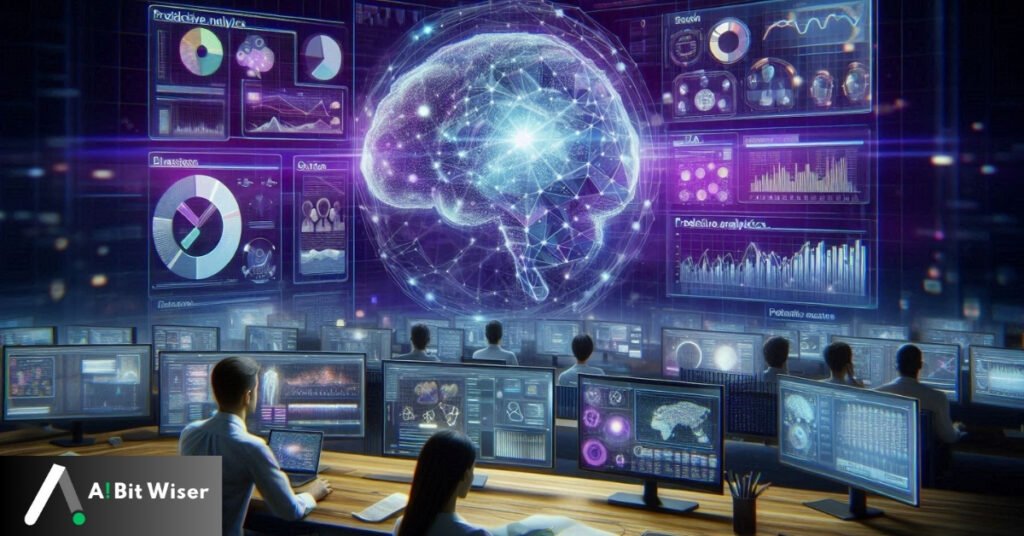AI Tools for Software QA: Revolutionizing Quality Assurance

AI Tools for Software QA: Making sure technology products are of the highest caliber is essential in the current fast-paced developing software environment. A big part of this process is software quality assurance or QA, but conventional approaches frequently can’t keep up with the demands of contemporary development cycles.
Welcome to Artificial Intelligence (AI), a revolution in software quality assurance. By automating operations, decreasing human error, and expediting procedures, AI solutions are completely changing the QA landscape and guaranteeing that software products are delivered more quickly and with more quality than ever before.
The Need for AI in Software QA
Despite their widespread effectiveness, traditional QA techniques have several drawbacks. Manual testing takes a lot of time, is prone to human mistakes, and frequently becomes unscalable as projects get more complicated. These difficulties may cause product releases to be delayed and raise the possibility that defects may find their way into production.
AI helps with these problems by improving accuracy, handling complex testing scenarios, and automating repetitive processes. AI tools for software QA are extremely useful in the quality assurance process because of their ability to swiftly analyze large volumes of data, spot trends, and anticipate any problems before they arise.

Key AI Tools for Software QA
Software AI tools QA are made to solve particular problems and enhance several facets of the QA procedure. The following are a few of the best AI tools on the market right now:
1. AI-Powered Test Automation Tools
- Synopsis: AI tools for software QA of test solutions are intended to reduce the time and effort needed for manual testing by automating repetitive testing processes.
- Examples:
- Testim: Makes use of AI to generate and keep up-to-date test cases, even when the application being tested changes.
- Function: Automates end-to-end testing with artificial intelligence (AI), enabling testers to write tests without writing any code.
2. AI-Driven Bug Detection Tools
- Description: These technologies use artificial intelligence (AI) to analyze runtime behavior and code patterns to find software problems.
- Examples:
- DeepCode: An AI-driven code review tool that scans code against millions of public repositories to find errors and vulnerabilities.
- Sentry: Tracks and analyzes crashes in real time, utilizing AI to identify the underlying source of problems.
3. AI for Test Case Generation
- Description: To provide thorough test coverage, AI-driven solutions can automatically develop test cases by examining user stories, requirements, or current code.
- Examples:
- Diffblue Cover: Make sure your Java code is adequately tested by automatically creating unit tests for it.
- TARA AI: Produces test cases by analyzing project requirements and design documents using AI.
4. AI in Performance Testing
- Description: Artificial intelligence (AI) performance testing technologies are capable of simulating varied user loads and locating performance bottlenecks in diverse scenarios.
- Examples:
- Applitools: During performance testing, Applitools uses AI to find visual abnormalities on various browsers and devices.
- Dynatrace: Uses AI to track and evaluate real-time application performance and deliver insights that may be put to use.
5. AI Tools for Software QA: Predictive Analytics
- Description: Predictive analytics solutions employ artificial intelligence (AI) to anticipate possible problems and recommend preventive actions before problems occur.
- Examples:
- Sealights: Assists in allocating testing resources by offering forecast insights into how code modifications affect program quality.
- Zebrunner: Predicts test case failure rates and high-risk locations by using AI to provide insights into test execution outcomes.
Benefits of Using AI Tools in Software QA
Using AI technologies in software With so many advantages, QA is becoming a more and more preferred option for development teams:
Increased Accuracy
- How AI Reduces Errors: By automating tedious operations and guaranteeing consistency in test execution, AI lowers the possibility of human mistakes. Test findings become more trustworthy and accurate as a consequence.
Efficiency and Speed
- Accelerating the QA Process: AI technologies can run tests far more quickly than human testers, which facilitates the speedier detection and fixing of problems. For pipelines used in continuous integration and delivery (CI/CD), this speed is essential.
Scalability
- Handling Large-Scale Projects: Artificial intelligence (AI) solutions are perfect for handling big-scale software projects that would be difficult to manage manually since they can efficiently manage massive amounts of test cases and data.
Cost Reduction
- Long-Term Savings: The long-term benefits from less human labor, quicker testing cycles, and fewer post-release faults can outweigh the initial cost of implementing AI solutions.

Challenges and Considerations
Even with all of the advantages, there are still obstacles and things to keep in mind while using AI for software quality assurance:
Initial Setup and Integration Costs
- Investment Required: The initial costs of integrating AI technologies into current workflows can be high, as they need time and money to set up and train.
Learning Curve
- Need for Skilled Personnel: It could need more training for teams to use AI tools efficiently. Ensuring team members are knowledgeable on the most recent advancements in AI technology is crucial.
Ethical Considerations
- Mitigating AI Bias: Biases in AI systems might occasionally result in erroneous test results or undetected defects. To make sure AI models stay impartial and useful, it’s critical to regularly assess and improve them.
Future Trends in AI for Software QA
There is a bright future for AI in software quality assurance since the following trends are expected to influence the market:
Advancements in AI Algorithms
- Evolution of AI: As AI algorithms develop further, they will become ever more precise and effective, which will increase their usefulness in quality assurance procedures.
Increased Integration with CI/CD Pipelines
- Seamless Integration: To enable even quicker and more dependable software delivery, AI technologies will be more thoroughly integrated into CI/CD pipelines.
Collaborative AI in QA
- Enhancing Team Collaboration: AI will be more involved in fostering communication between the QA and development teams, which will speed up the identification and resolution of problems.
Case Studies and Success Stories
To demonstrate AI’s efficacy in software quality assurance, consider the following practical instances:
Example 1:
- Company: A big financial services firm
- Challenge: The business had difficulties while manually testing intricate financial applications, which caused release cycle delays.
- Solution: The company was able to completely automate more than 80% of its test cases and cut its testing time in half by using Testim, an AI-powered test automation solution.
Example 2:
- Company: An international e-commerce network
- Challenge: It was challenging to find and repair faults quickly due to a big user base and frequent program changes.
- Solution: The business used DeepCode for AI-driven bug identification as a solution, which greatly decreased the number of defects that made it into production and raised user satisfaction levels all around.
Conclusion
AI tools for software QA are changing as a result of AI technologies, which provide more scalability, accuracy, and efficiency. Teams are producing higher-quality software more quickly thanks to artificial intelligence (AI), which automates repetitive activities, lowers human error, and offers predictive insights.
Although there are certain difficulties to take into account, there are several advantages to incorporating AI into the QA process. AI will surely become much more important in guaranteeing the dependability and quality of software products as it develops.
Additional Resources
For those interested in exploring AI tools for software QA further, here are some recommended resources:
- Further Reading:
- The Role of AI in Modern Software Development
- How to Choose the Right AI Tool for Your QA Process
- Tools and Platforms:
FAQs: AI Tools for Software QA
Is there any AI tool for software testing?
Indeed, there are several AI tools made especially for evaluating software. These technologies use AI to automate performance testing, problem finding, test case creation, and other tasks. Software testing solutions with AI capabilities that are widely used include Applitools, Testim, Functionalize, DeepCode, and Dynatrace. These instruments improve test accuracy, expedite the testing procedure, and require less manual labor.
How can AI be used in QA?
Automating repetitive processes in quality assurance (QA) such as regression testing, problem identification, and test case creation is possible using AI. AI systems may evaluate code, forecast any problems, and make recommendations for enhancements, increasing the QA process’s overall effectiveness and precision.
By finding bottlenecks and simulating different user scenarios, AI may also help with performance testing. Predictive analytics powered by AI may also prioritize testing efforts and anticipate possible hazards, resulting in more dependable software.
What is the best AI to use for a test?
The particular requirements of your project will determine which AI tool is ideal for testing. Testim and Functionize are well-known for their thorough test automation. Sentry and DeepCode are great options if you need AI-driven bug identification.
Applitools & Dynatrace are two of the greatest tools for performance monitoring and visual testing. Since every tool has advantages and disadvantages, it’s critical to select one that will best meet your testing needs.
How to use AI in test automation?
Choose an AI-powered test automation platform such as Functionize or Testim before attempting to employ AI in test automation. Usually, these tools include an easy-to-use interface that lets you construct test cases without having to write a lot of code. As your application develops, AI will then generate, run, and maintain these tests automatically.
AI may also examine test data to find trends and possible problems, freeing you up to concentrate on testing jobs that are more intricate. For quicker feedback loops and continuous testing, link the tool with your CI/CD workflow and update it regularly.
Will AI replace testers?
While it is unlikely to replace testers, AI will drastically change the functions that they play. Testers may concentrate on more strategic QA elements like exploratory testing, test design, and quality analysis as AI systems can manage monotonous jobs.
Artificial intelligence (AI) is a useful ally that complements human testers rather than substitutes them. AI and human testers working together will result in more complete and effective testing procedures, which will raise the caliber of the program.















